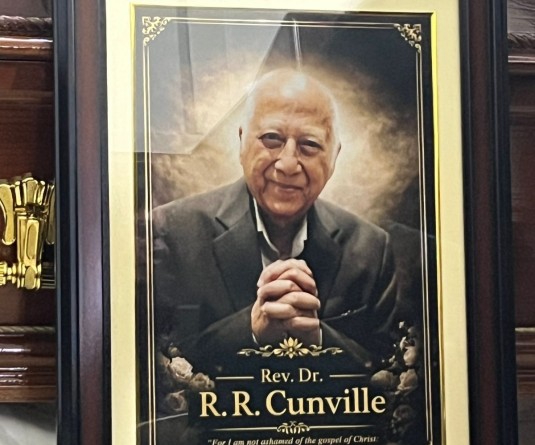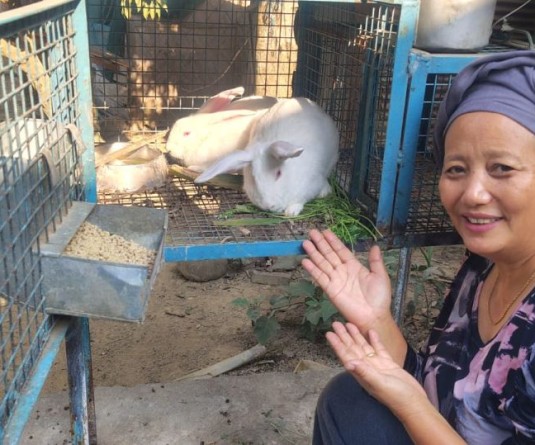
Rinmayo Rainam
Dimapur
What makes a law both a shield and a burden at the same time? In Dimapur, the Inner Line Permit (ILP) raises this very puzzle: difficult to enforce, yet impossible to ignore. The ILP is a travel document required for non-tribal or non-local Indians to enter certain protected states and regions in Northeast Indian states like Nagaland. The enforcement of the Inner Line Permit in Dimapur is not a matter of choice but a matter of necessity. The question is why was ILP not implemented in Dimapur? Dimapur, historically part of the Dimasa kingdom and later Assam, differs from other Nagaland areas, notably in its economic and trade dominance, which made ILP impossible in Dimapur for an extended period.
The rising concern among many local groups and tribes about jobs, land, and businesses being taken by outsiders while their traditional ways slowly become extinct led Dimapur to realize that implementing ILP is necessary to protect its identity, land, and people. By 2025, the pressure grew stronger from the Naga Students’ Federation (NSF), backed by tribal Hohos and other civil society groups, who argued that unchecked migration was threatening indigenous rights, employment opportunities, and cultural identity. Consequently, the Government of Nagaland officially implemented the Inner Line Permit (ILP) system in Dimapur, along with the districts of Chümoukedima and Niuland, starting May 14, 2025.
The implementation of the Inner Line Permit in Dimapur is unlikely to be straightforward, given the city’s heterogeneous population and the complex web of social and economic interactions that have evolved over time. There are people from different communities who have lived and worked for decades; a diverse group has resided and worked here for a considerable duration, and many families have settled peacefully, some for generations, without any conflict. With ILP rules being applied, many of these people will face uncertainty and fear. It could also be a challenge for daily wage workers, shop owners, and small business people to obtain the required permits or documents. The process will create tension between locals and non-locals, especially if not handled with care. It's going to be a complex and emotional challenge, needing careful planning, compassion, and fairness. This is an opportunity for Nagas to take control of their society. But no policy is more urgent for Dimapur than the ILP; we should not misuse it but proceed with caution and care.
Honestly, it's not going to be simple. Why?
Dimapur, the gateway and commercial hub of Nagaland, has recently witnessed a visible increase in begging, particularly in markets and public spaces. Many of these beggars come from neighboring regions and enter Dimapur in search of a livelihood. Some of them, instead of finding work, resort to begging in markets, traffic points, and public spaces, which increasingly witness this trend. This situation creates a paradox. Naga culture, known for generosity and hospitality, often extends kindness to outsiders. However, this very generosity is sometimes exploited, turning Dimapur into a destination for those seeking sustenance through begging rather than productive work. Over time, this trend not only disrupts the urban environment but also raises concerns about social order and cultural integrity. Tackling Dimapur’s rising influx means stricter entry checks, stronger welfare for locals, and smarter charity, so kindness should help people rise up, instead of making them depend on begging.
There is an ongoing debate about the Inner Line Permit (ILP) in Dimapur. One group of people is often ignored: those who may not have been born here or lived for a long period, but who now call this city home. They are the ones who came to Dimapur not to exploit, but to live, work, and belong. They have raised children here, opened small shops, taught in schools, worked as mechanics or masons, served tea, cleaned streets, and sold vegetables. They have stitched clothes quietly, without asking for much, without breaking laws, and with genuine respect for the land and its people. Now, with ILP being implemented, they suddenly find themselves being called "outsiders". They are watched, questioned, and pressured not for any wrongdoing, but for lacking the right papers. These are people who work hard, speak Nagamese, celebrate our festivals, and call Dimapur their home. They are no longer strangers but neighbors, friends, and co-workers. ILP must protect identity, not alienate those who have already become part of our social fabric.
A bigger problem related to ILP in Dimapur is the lack of public awareness about what ILP is, why it's needed, or how to apply for it properly. Because of this information gap, there is confusion and inconvenience, which leads people to rely on middlemen. Middlemen will keep taking advantage of people who just want to follow the rules. Many citizens, especially those who earn daily wages or run small businesses, end up spending extra money or losing valuable time because they don't have the correct information. Instead of helping to protect them, the ILP system might start causing trouble and unfairness. That’s why raising awareness isn’t just something extra to do; it's really important for making ILP clear, fair, and useful for everyone in Dimapur.
The decision to implement ILP raises serious concerns about business and economic disruption, particularly in Dimapur, the commercial heart of the state. It is a trading hub, a logistical centre, and a crossroads of communities. From vegetables to clothes to construction materials and transport, most goods and services in the state come through Dimapur. It's where traders, labourers, and transporters, both locals and non-locals, work together every day to keep the economy running. Goods for the entire state and even for parts of Manipur, Assam, and Arunachal come through Dimapur. Its economy is powered not only by the tribal population but by a large number of non-tribal workers, traders, transporters, and entrepreneurs.
For example:
a) Dimapur's markets—from New Market and Hong Kong Market to wholesale godowns—are full of traders from different backgrounds. Many non-local businessmen have been part of this city for generations, supplying goods at low prices and keeping Nagaland's retail chains alive. With ILP, this uncertainty can cause a drop in investment, withdrawal of goods, and price increases for consumers.
b) Much of the construction work, daily loading and unloading of goods, roadside services, and manual labour in Dimapur is done by workers from Assam, Bihar, West Bengal, and other neighbouring states. With ILP, these workers will now have to obtain permits, renew them, and possibly face restrictions or harassment. Many may stop coming altogether. Without them, many projects may slow down or stop, affecting both private homes and public development.
c) Transport is the backbone of Dimapur's economy. Thousands of goods trucks enter and leave the city every day. Many of the drivers, helpers, and logistics workers are non-Nagas. If ILP enforcement tightens at checkpoints and borders, it could cause delays in shipments, fuel price increases, and a breakdown of the fragile transport chain.
My opinion is clear: the Inner Line Permit is not only necessary but requisite, and that is why its urgency can no longer be ignored. The need for ILP in Nagaland is beyond debate, yet Dimapur presents unique challenges of law, economy, and society. A rigid approach could cripple the city’s commerce, which thrives on outside labor and trade. A practical way forward is to strengthen ILP entry checks, provide welfare support like shelters and skill training for the needy, and promote responsible charity that offers food, education, or work instead of cash. This type of charity with kindness uplifts people while keeping Dimapur’s social order intact.
Balanced solutions should be issued after careful assessment of people and their background, taking into account their years of residence, peaceful conduct, criminal record, and contribution to the community. For people who have not lived here for a long period, authorities could conduct interviews and verification processes to identify genuine settlers deserving of stability and security.
ILP awareness should not be unclear or only mentioned in official documents. It needs to be shared clearly and with many people. Using social media, local newspapers, posters in neighborhoods and markets, radio messages, and small group meetings in community centers can help spread the information. Having easy-to-reach help desks and service counters in Dimapur will also let people get real answers to their questions from trained staff.
Also, Temporary Work Permits for traders and workers can regulate movement without strangling growth. ILP must be people-friendly. Our culture will not survive in isolation but in illumination when we share and celebrate our heritage. Balance, fairness, and thoughtfulness—let that be the spirit of ILP.
Will Dimapur’s ILP be remembered as a shield of identity or a wall of division?





